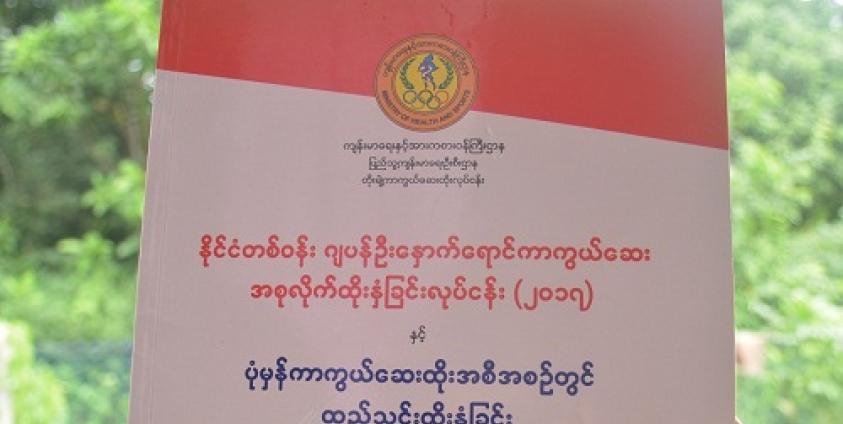The Karen Department of Health and Welfare (KDHW) is prepared to assist the Ministry of Health and Sports (MoHS) in a nationwide drive to vaccinate children against Japanese encephalitis, and even lead efforts in areas controlled by armed ethnic organizations.
The ministry’s nationwide Japanese encephalitis vaccination drive, which aims to immunize 14 million children in Myanmar against the potentially deadly disease, will kick off on November 15. Children between the age of 5 and 15 will be eligible for vaccinations until November 23, while children aged 9 months to 5 years will be vaccinated next month, from December 11 to 20.
KDHW consultant Dr Marta said the KDHW would assist the effort in areas controlled by the Karen National Union (KNU), as those villages are inaccessible for government health authorities.
“The KNU-controlled area covers not only Kayin [Karen] State, but also extends into other states and regions. The government’s health department is still unable to enter. We will cooperate with officials from the state government to provide vaccinations in Kayin State, and we will lead immunizations for children in KNU-controlled areas of Bago Region. We need to have mutual understanding in order to complete this together,” Dr Marta told KIC News.
The KDHW will provide vaccinations in Kayin State’s Hpa-An, Hlaingbwe, Kawkareik, Kya-I Seikkyi, Myawaddy, and Thandaunggyi townships. The group will also lead vaccination efforts in 316 villages in Shwegyin and Kyaukkyi townships in eastern Bago Region, and Dawei and Tanintharyi townships in Tanintharyi Region.
Japanese encephalitis is deadly, mosquito-borne virus. Humans who live in rural areas around standing water, such as rice paddies, are at more significant risk.
Symptoms can take between 5 and 15 days to develop, and include sudden fever, headache, tiredness, fainting, and vomiting, according to the U.S. Centers for Disease Control. Severe cases can cause swelling around the brain, prompting seizures, comas, paralysis or death.
For patients who survive the disease, some 30 percent suffer from lasting neurological effects, including paralytic conditions and brain damage.
“There is no antiviral treatment after [the disease] it has been contracted. There are only treatments to relieve [the symptoms],” said Dr Tun Min, head of Kayin State’s Public Health Department.
“The best way to protect [against contracting Japanese encephalitis] is the vaccine. It costs tens of thousands [of kyat] to buy the vaccine outside. Now, the government and the international groups are providing the vaccine. INGOs and ethnic health groups will cooperate in vaccinating children…and we will try not to leave any child behind.”
Vaccines will be administered in schools, monasteries and monastic schools.
Japanese encephalitis is endemic across Southeast Asia, with major outbreaks reported last year in Ayeyarwaddy, Bago, and Yangon regions and Rakhine and Shan states, according to the health ministry.
According to the ministry’s Expanded Program on Immunization, 393 people were diagnosed with Japanese encephalitis in 2016, spurring the government to undertake a vaccination drive that particularly targeted Rakhine and northern Shan States. This year, 200 cases have already been reported, The Myanmar Times reported last month.








